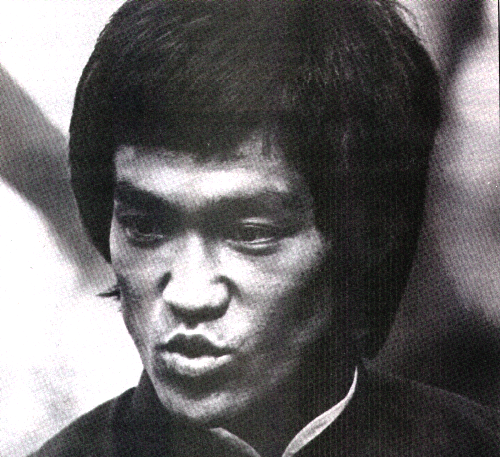
As Lee walks up to the head monk, he greets him with “Teacher”, and bows with respect.
The monk asks Lee: “Your skill has gone beyond mere technique and is now one of spiritual insight. Now I would like to ask you several questions. First, what was your immediate feeling towards your opponent during sparring?”
“There was no opponent,” Lee replies.
“And why was that?” the monk asks with happy anticipation.
“Because the word ‘I’ does not exist.”
The monk says to Lee, “Continue to speak”.
Lee continues, “Then the state of mindlessness is most fluid. One does not become tense, but ready, not thinking, yet not dreaming, not being rigidly set, but flexible. Ready for what might come. When the opponent expands, I contract, and when he contracts, I expand!, and when there is an opportunity I do not hit, it hits by itself”.
The monk asks again, “That which you refer to is a weapon that is easily misused by a martial artist who deserts his vows. For centuries, even with the invention of firearms, the regulations of the Shaolin Temple have remained the same. What is the Shaolin temple No. 13?”
Lee now recites this rule: “A martial artist must be responsible for himself and accept the consequences of his own doing”.
The old monk lowers his head and continues the conversation, “I am ashamed to tell you that among the Shaolin Temple men I have taught one who has turned his knowledge and strength to his own profit. He has perverted all we hold true. His name is Han. You know what to do, to restore the integrity of the Shaolin Temple”.
Lee looks at the monk and replies simply, “I know”.
The monk stares at Lee and nods in satisfaction and says, “Then go, a man has come to see you, listen to him”.
Lee bows, walks away and in the next scene meets Mr Braithwaite and has his usual cup of tea.
